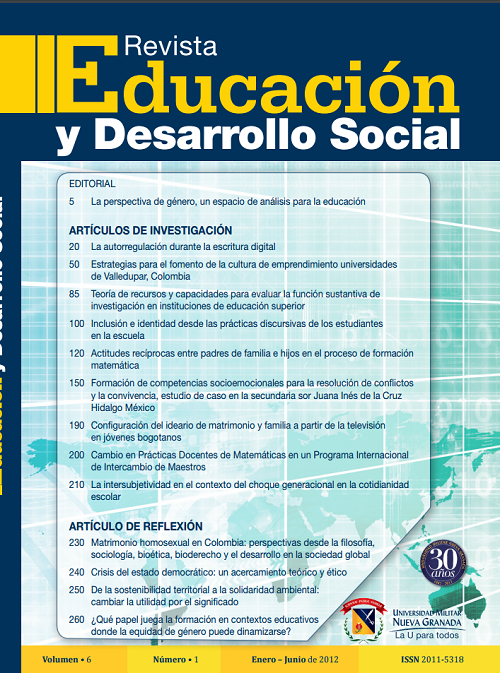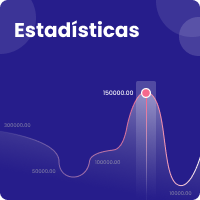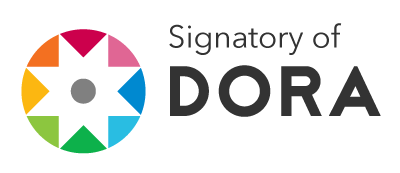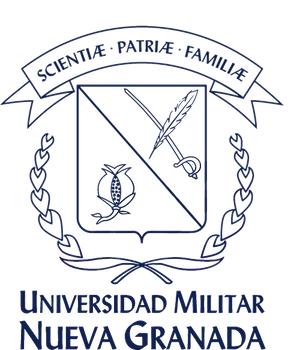Cambio en prácticas docentes de matemáticas en un programa internacional de intercambio de maestros
Resumen
El presente estudio se enfocó en el cambio de las prácticas docentes en el área de matemáticas en dos grupos de maestros de enseñanza primaria y secundaria, uno de Guatemala y otro de los Estados Unidos. Los docentes participaron en un programa de intercambio de maestros que les dio la oportunidad de explorar las culturas y métodos de enseñanza de las matemáticas respectivos. En sus centros educativos de origen los docentes, durante un periodo de seis meses, implementaron un plan de acción investigadora orientado a promover el cambio de métodos pedagógicos. A fin de determinar las etapas de preocupación y el nivel de uso de la acción investigadora, el estudio utilizó instrumentación basada en el Concerns Based Adoption Model. El análisis de documentos, entrevistas y observaciones indica que cinco de los seis maestros participantes cambiaron sus prácticas docentes, aunque con variaciones entre unos y otros. Todos los maestros declararon haberse beneficiado del intercambio y expresaron que los cambios fueron un resultado directo de las experiencias obtenidas durante el intercambio.
Descargas
Referencias bibliográficas
Alfaro, C. (2008). Global student teaching experiences: Stories bridging cultural and intercultural difference. Multicultural Education, 15(4), 20-26.
Anderson, S. (1997). Understanding teacher change: revisiting the Concerns Based Adoption Model. Curriculum Inquiry, 27, pp. 331-367. Doi: 10.1111/0362-6784.00057.
Avivara (2015). Education in Guatemala. Retrieved from http://www.avivara.org/aboutguatemala/educationinguatemala.html
Banks, J & McGee Banks, C. (Eds.) (2003). Handbook of research on multicultural education. San Francisco, CA: Wiley and Sons.
Batey, J., & Lupi, M. (2012). Reflections on student interns' cultural awareness developed through a short-term international internship.
Teacher Education Quarterly, 39(3), 25-44.
Bonner, P. (2006). Transformation of teacher attitude and approach to math instruction through collaborative action research. Teacher Education Quarterly, 33,3.
Bradley-Levine, J., Smith. J. & Carr, K. (2009). The role of action research in empowering teachers to change their practice. Journal of Ethnographic & Qualitative Research 3, 3, pp.152-161.
Brown, A., and Patten, E. (2013). Hispanics of Guatemalan origin in the United States. Pew Research Center. Retrieved from http://www.pewhispanic.org/2013/06/19/hispanics-of-guatemalan-origin-in-the-united-states-2011/
Chamblee, G., Slough, S. & Wunsch, G. (2008). Measuring high school mathematics teachers' concerns about graphing calculators and change: A yearlong study. Journal of Computers in Mathematics and Science Teaching 27, 2.
Christou, C., Eliiophotou-Menon M. & Philippou G. (2004). Teachers' concerns regarding the adoption of a new mathematics curriculum: An application of CBAM. Educational Studies in Mathematics 57, 2.
Colucci-Gray, L., Das, S., Gray, D., Robson, D. & and Spratt, J. (2013). Evidence-based practice and teacher action-research: a reflection on the nature and direction of 'change'. British Educational Research Journal 39, 1, pp.126-147. Doi: 10.1080/01411926.2011.615389.
Cushner, K., & Brennan, S. (2007). Intercultural Student Teaching: A Bridge to Global Competence. Blue Ridge Summit, PA: Rowman & Littlefield Education.
Department of Education (2001). No Child Left Behind Act. Washington, D.C.
Dunn, A. H., Dotson, E. K., Cross, S. B., Kesner, J., & Lundahl, B. (2014). Reconsidering the local after a transformative global experience: A comparison of two study abroad programs for preservice teachers. Action in Teacher Education, 36(4), 283-304.
Empresarios por la educación. (2014). La educación esta en nuestros manos. Retrieved from http://www.empresariosporlaeducacion.org/node/56.
Feistritzer, C.E. (2011). Profile of teachers in the U.S. 2011. National Center for Education Information. Retrieved from http://www.edweek.org/media/pot2011final-blog.pdf
Feldman, A. & Weiss, T. (2010). Understanding change in teachers' ways of being through collaborative action research: a cultural-historical activity theory analysis. Educational Action Research 18, 1, pp. 29-55. Doi: 10.1080/09650790903484517.
Glatthorn, A. (2000). Aligning the curriculum. In The principal as curriculum leader: Shaping what is taught and tested. Thousand Oaks, CA: Corwin Press.
Guatemalan Government (2015). Ministerio de Educación. Retrieved from http://www.mineduc.gob.gt/portal/index.asp
Haggarty, L. & Postlethwaite, K. (2003). Action Research: a strategy for teacher change and school development? Oxford Review of Education 29, 4, pp. 423-448.
Hall, G. & Hord, S. (2010). Implementing change: Patterns, principles, and potholes (3rd ed.) Upper Saddle River, NJ: Prentice Hall.
Huillet, D., Adler, J. & Berger, M. (2011). Teachers as researchers: Placing mathematics at the core. Education as Change 15, 1, pp. 17-32. Doi: 10.1080/16823206.2011.580769.
Hussar, W.J., and Bailey, T.M. (2013). Projections of Education Statistics to 2022 (NCES 2014-051). U.S. Department of Education, National Center for Education Statistics. Washington, DC: U.S. Government Printing Office.
Institute for Educational Studies (2015). Program for International Student Assessment. Retrieved from http://nces.ed.gov/surveys/PISA/datafiles.asp.
Irvine, J.J. (2010). Culturally relevant pedagogy. The Education Digest, 75, 8, pp. 57-61.
Khoboli, B. & O'Toole, J. (2012). The Concerns-Based Adoption Model: Teachers' Participation in Action Research. Systemic Practice & Action Research 25, 2, pp.137-148. Doi: 10.1007/s11213-011-9214-8.
Ladson-Billings, G. (1995). Toward a theory of culturally relevant pedagogy. American Educational Research Journal, 32, 3, pp. 465-491.
Lee, J. F. (2009). ESL student teachers' perceptions of a short-term overseas immersion programme. Teaching and Teacher Education, 25(8), 1095-1104.
Leonard, J., Brooks, W., Barnes-Johnson, J. and Berry, R.Q. (2010). The nuances and complexities of teaching mathematics for cultural relevance and social justice. Journal of Teacher Education, 61, 3, pp. 261-270.
Li, Y.-L. (2008). Teachers in action research: Assumptions and potentials. Educational Action Research, 18, 2.
Liljedahl, P. (2010). Noticing rapid and profound mathematics teacher change. Journal of Mathematics Teacher Education 13, 5.
Lofstrom, M. (2007). Why are Hispanic and African American Dropout rates so high? Discussion Paper no. 3265, Institute for the Study of Labor, Bonn (Germany).
Lupi, M., & Batey, J. (2009). Teaching interships: Creating successful transformational experiences. SRATE Journal, 18(2), 48-55.
McEwan, P. and Trowbridge, M. (2007). The achievement of indigenous students in Guatemalan primary schools. International Journal of Educational Development. 27, 61-76.
National Council of Teachers of Mathematics (2000). Principles and standards for school mathematics. Reston, VA: NCTM.
National Center for Educational Statistics (2014). Education Longitudinal Study of 2002. Retrieved from http://nces.ed.gov/surveys/els2002/avail_data.asp.
Pence, H., & Macgillivray, I. (2008). The impact of an international field experience on preservice teachers. Teaching and Teacher Education, 24(1), 14-25.
Pérez, B., & Torres-Guzmán, M. E. (2002). Learning in two worlds. An integrated Spanish/English biliteracy approach. Boston, MA: Allyn and Bacon.
Postholm, M. (2009). Research and development work: Developing teachers as researchers or just teachers. Educational Action Research 17, 4.
Rosal, S. (2014). Empresarios por la educación. Accessed September 3, 2014 at http://www.empresariosporlaeducacion.org/es/inicio.php.
Ross, J. & Bruce, C. (2012). Evaluating the impact of collaborative action research on teachers: a quantitative approach. Teacher Development 16, 4.
Stake, R.E. (2005). Qualitative case studies. In N. Denzin & Y. Lincoln, The SAGE handbook of qualitative research (3rd ed.), Thousand Oaks, CA: SAGE Publications, pp. 443-466.
TIMMS. (2014). TIMMS 2011 international results in mathematics. Retrieved from http://timssandpirls.bc.edu/timss2011/international-results-mathematics.html.
Tunks, J. (2012). A comparison of Guatemalan and U.S. mathematics instructional practices. Comparative and International Education Society, San Juan, Puerto Rico.
Tunks, J., & Weller, K. (2009). Changing practice, changing minds, from arithmetical to algebraic thinking: An application of the concerns-based adoption model (CBAM). Educational Studies in Mathematics, 72(2), 161-183.
Villegas, A., & Lucas, T. (2002). Preparing culturally responsive teachers: Rethinking the curriculum. Journal of Teacher Education, 53(1), 20-32.
Willard-Holt, C. (2001). The impact of a short-term international experience for preservice teachers. Teaching and Teacher Education, 17(4), 505-517.
World Bank (2015). Guatemala. Retrieved from http://www.worldbank.org/en/country/guatemala











